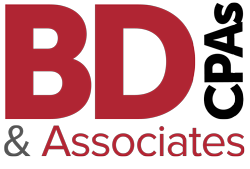“When should I file my income tax return?” I probably answer this question more than any other. On the face of it, it seems like an easy question. But there are definitely things to consider. To start with the filing deadlines should be noted. This year the deadlines have been moved around a bit, so for clarity, I will note the deadline for each calendar year taxpayer.
March 15 (Extensions until September 15): Partnership and S-Corporation tax returns are due.
April 17 (Extensions until October 16): Individuals, and Estates and Trusts tax returns are due.
April 17 (Extensions until September 15): Corporation tax returns are due.
May 15 (Extensions until November 15): Exempt Organization tax returns are due.
I think I have heard every possible philosophy when it comes to tax return timing, from early as possible to as close to the deadline as possible and everything in between. Let’s examine the choices.
Certainly, if you expect a refund the incentive is to file your tax return as early as possible. Just make sure you have enough time to collect all the relevant information and to make smart deliberate decisions. Being too hasty can result in an incorrectly filed return which will often slow down your refund. Even worse, you might find that your hasty return requires an amendment which extends the amount of time the IRS has to audit your tax return and also draws more attention to your return. In short being right is better than being fast.
Some taxpayers are intent to file their returns no later than the initial due date but they are unable to get all their tax information to their accountant until just days or a week before the deadline. This does not normally serve the taxpayer well. The two weeks before each deadline are the busiest times of the year for a tax preparer. During these times preparers work fast and on little sleep. Errors are more common at these times than at other times and your preparer will be less likely to spend sufficient time with you to insure you take full advantage of every tax benefit available to you. My recommendation is that if you get caught in this crunch you let your preparer know that you would prefer to file an extension and have your return prepared after things calm down.
For many people procrastination is the name of their game. Some like to procrastinate all the way until October 14 before they start communicating with their accountant about their tax return. This is the worst time of all to file a tax return. All the disadvantages of working with an over-worked accountant apply here but on steroids as there are no more extensions of time to file left. Error rates on these returns are very high and they often require amendments. DON’T WAIT UNTIL OCTOBER 14.
Clients often wonder if extending their tax return will make them more or less likely to be audited. There is no evidence to support a conclusion here, but the IRS does not discourage extensions. If you will file an extension remember that you don’t get an extension of time to pay your tax. You should make arrangements to pay the tax you expect to owe no later than the original due date of your tax return.
The best plan for tax filing is to gather your documents as soon as you can and give your accountant ample time to review and discuss your tax situation with you. Don’t be afraid to use an extension, especially if it means that you will have better information and more time to make better decisions.
—
Ben Smith, MTAX, CPA
Tax Manager

